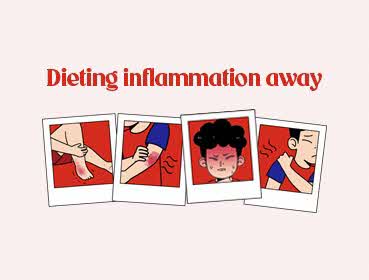Sepsis, the deadly nemesis
Get the deep dive on the medical condition that has claimed millions of lives worldwide
Ever played laser tag with your friends? You might’ve gotten hit by a teammate in a moment of chaos. This friendly fire is not unlike what happens in the human body affected by sepsis.
Sepsis is a serious medical condition that happens when the immune system’s attempts to fend off an ongoing infection spirals out of control and damages critical organs1. It often starts with minor infection symptoms before snowballing into a life-threatening medical emergency2.
Compared to cerebral stroke or heart disease, this condition is frequently overlooked as a serious health concern. Still, sepsis is no laughing matter. According to the World Health Organization, sepsis has claimed about 11 million deaths and left millions more disabled3. Complications from sepsis have proven fatal for patients with chronic or debilitating conditions, as in the case of boxing legend Muhammad Ali4 and the actor Christopher Reeve5.
Prevention and early treatment greatly improve the odds of surviving sepsis6, and knowing how to detect the signs before it progresses to the acute stage can save lives.
Stopping sepsis in its track
Get the basics on how to spot the symptoms, infection risks to watch out for, and tips on maintaining good hygiene through everyday habits and precautions.
Five key facts about sepsis
While public awareness of sepsis is still relatively low in Singapore, this condition deserves more attention. Here’s why.
- Every year, up to 48.9 million people globally are affected by sepsis6.
- Sepsis accounts for 1 in every 5 deaths worldwide, or about 11 million deaths a year6.
- Septic shock, the most severe stage of sepsis, can cause death in just 12 hours7.
- Even with treatment, an estimated 30-40% of patients suffering from septic shock will die7.
- Pneumonia and urinary tract infections, common causes of sepsis, account for 20% of total mortality cases in Singapore8.
The three stages of sepsis
Journey through the progression of sepsis, from the presence of bacteria in the bloodstream to the most severe stage that could lead to multiple organ failure or death.

Are you (or your loved ones) at risk?
While no one is immune from sepsis, people who are vulnerable to infection have a higher risk of exposure.
Specifically, a person might be at higher risk7 if they are…
- Older than 65
- Nursing a pregnancy
- Young children, newborns, and infants
- Immunocompromised, or have weakened immune systems
- Patients hospitalised for other medical reasons
- Suffering from severe injuries (such as large burns or wounds)
- Using catheters, IVs, or breathing tubes
Simple steps to keep sepsis away
Sepsis is a major cause of medical emergency. For every 1,000 hospitalised patients, an estimated 15 patients will develop sepsis as a complication while receiving medical care6. Due to its rapid progression, early treatment and appropriate clinical intervention can determine a person’s chances of survival.
Often, this intervention requires your care provider to consult with clinicians who specialise in sepsis and may involve transfers to the intensive care unit in a different hospital or ward. Depending on the severity of the case, patients suffering from sepsis may also require the support of healthcare professionals to get their health back on track – from physiotherapists, neuropsychologists to dieticians.
Given the speed and complexity of care required to manage sepsis, it is essential to protect yourself financially with a healthcare insurance plan that covers for prolonged hospital stays, changes in medical treatments and post-hospitalisation care. For a comprehensive Medisave-approved coverage that covers up to 95% of your total hospitalisation bill, consider GREAT Supreme Health, complemented with GREAT Total Care.
Sources:
- https://www.mayoclinic.org/diseases-conditions/sepsis/symptoms-causes/syc-20351214
- https://www.healthxchange.sg/news/what-is-sepsis
- https://www.who.int/news/item/08-09-2020-who-calls-for-global-action-on-sepsis---cause-of-1-in-5-deaths-worldwide
- https://www.cnn.com/2016/06/09/health/muhammad-ali-parkinsons-sepsis/index.html
- https://www.christopherreeve.org/todays-care/living-with-paralysis/health/secondary-conditions/sepsis/
- https://www.who.int/news-room/fact-sheets/detail/sepsis
- https://my.clevelandclinic.org/health/diseases/12361-sepsis
- https://annals.edu.sg/call-for-a-singapore-national-action-plan-for-sepsis-snaps-stop-sepsis-save-lives
- https://www.safetyandquality.gov.au/sites/default/files/2022-06/information_for_people_with_sepsis_and_their_families_for_adults_-_sepsis_clinical_care_standard.pdf
- https://www.mayoclinic.org/diseases-conditions/peritonitis/symptoms-causes/syc-20376247
- https://www.who.int/news-room/fact-sheets/detail/meningitis
- https://www.sepsis.org/sepsisand/cellulitis
- https://www.healthhub.sg/live-healthy/baby-immunisation-inject-to-protect
- https://pmc.ncbi.nlm.nih.gov/articles/PMC3485139
Let us match you with a qualified financial representative
Our financial representative will answer any questions you may have about our products and planning.











